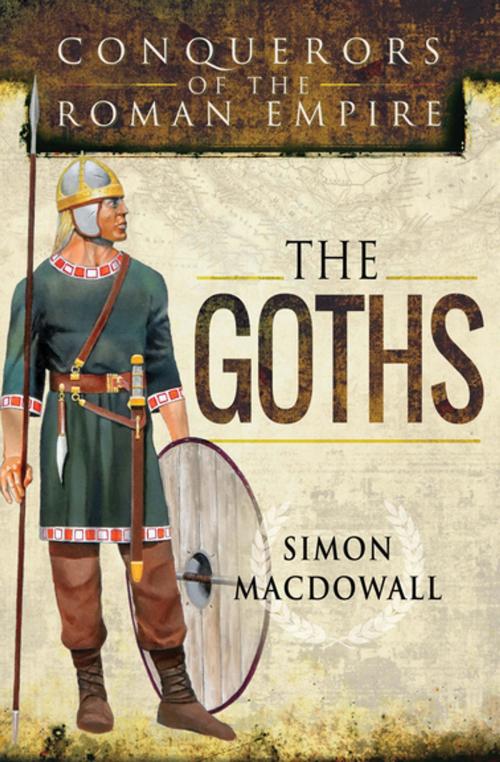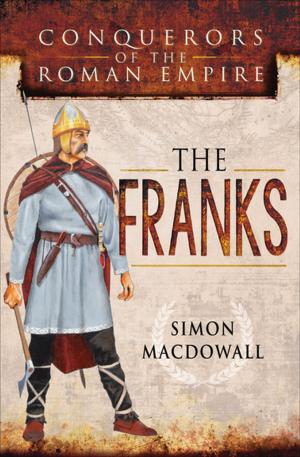| Author: | Simon MacDowall | ISBN: | 9781473889637 |
| Publisher: | Pen & Sword Books | Publication: | May 30, 2017 |
| Imprint: | Pen & Sword Military | Language: | English |
| Author: | Simon MacDowall |
| ISBN: | 9781473889637 |
| Publisher: | Pen & Sword Books |
| Publication: | May 30, 2017 |
| Imprint: | Pen & Sword Military |
| Language: | English |
The fascinating history of “a race that simply would not accept defeat” (Books Monthly).
In the late fourth century, pressure from the Huns forced the Goths to cross the Danube into the Roman Empire. The resultant Battle of Adrianople in 378 was one of Rome’s greatest defeats. Both western (Visigoth) and eastern (Ostrogoth) branches of the Goths had a complex relationship with the Romans, sometimes fighting as their allies against other “barbarian” interlopers but carving out their own kingdoms in the process. Under Alaric, the Visigoths sacked Rome itself in 410 and went on to establish a kingdom in Gaul (France). They helped the Romans defeat the Hunnic invasion of Gaul at Chalons in 451 but continued to expand at Roman expense. Defeated by the Franks, they then took Spain from the Vandals. The Ostrogoths had a similar relationship with the Eastern Roman Empire before eventually conquering Italy. Adrianople, the events of 410, and the Ostrogoths’ long war with Belisarius, including the Siege of Rome, are among the campaigns and battles Simon MacDowall narrates in detail. He analyses the arms and contrasting fighting styles of the Ostro- and Visi- Goths and evaluates their effectiveness against the Romans.
The fascinating history of “a race that simply would not accept defeat” (Books Monthly).
In the late fourth century, pressure from the Huns forced the Goths to cross the Danube into the Roman Empire. The resultant Battle of Adrianople in 378 was one of Rome’s greatest defeats. Both western (Visigoth) and eastern (Ostrogoth) branches of the Goths had a complex relationship with the Romans, sometimes fighting as their allies against other “barbarian” interlopers but carving out their own kingdoms in the process. Under Alaric, the Visigoths sacked Rome itself in 410 and went on to establish a kingdom in Gaul (France). They helped the Romans defeat the Hunnic invasion of Gaul at Chalons in 451 but continued to expand at Roman expense. Defeated by the Franks, they then took Spain from the Vandals. The Ostrogoths had a similar relationship with the Eastern Roman Empire before eventually conquering Italy. Adrianople, the events of 410, and the Ostrogoths’ long war with Belisarius, including the Siege of Rome, are among the campaigns and battles Simon MacDowall narrates in detail. He analyses the arms and contrasting fighting styles of the Ostro- and Visi- Goths and evaluates their effectiveness against the Romans.















